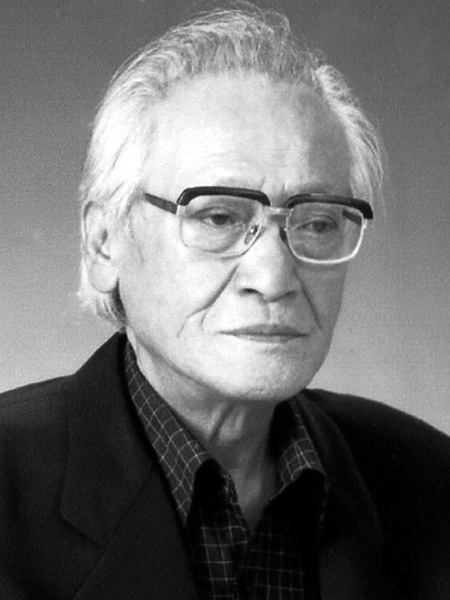-
<An Aimless Bullet> Beijing International Film Festival (2025)
-
<Hand> Seoul Independent Film Festival : SIFF (2024) - INDEPENDENT FILM ARCHIVE
-
<An Aimless Bullet> Florence Korea Film Fest (2024) - CINEMA ANNI SESSANTA
-
<An Aimless Bullet> San Sebastian International Film Festival (2021) - Retrospective - Flowers in Hell. The Golden Age of Korean Cinema
-
<Son of a Man> Busan International Film Festival : BIFF (2019) - Korean Cinema Retrospective
-
<The Empty Dream> Jeonju International Film Festival : JIFF (2019) - 100 Years of Korean Cinema: Another Upspring of Korean Cinema
-
<An Aimless Bullet> Chungmuro International Musical Film Festival : CHIMFF (2019) - Opening Film
-
<An Aimless Bullet> Seoul International Food Film Festival (2019) - 100 Years of Korean Cinema Retrospective
-
<School Excursion> Seoul International Film Festival (2019)
-
<An Aimless Bullet> Busan International Film Festival : BIFF (2019) - Special Programs in Focus - The 100 Year History of Korean Cinema: 10 Great Korean Films
-
<Rainy Days> Gangneung International Film Festival (2019)
-
<An Aimless Bullet> London Korean Film Festival (2019) - Special Focus: A Century of Korean Cinema
-
<An Aimless Bullet> Paris Korean Film Festival (2019) - Classic
-
<An Aimless Bullet> Muju Film Festival : MJFF (2017) - Contemporary Panorama
-
<An Aimless Bullet> Berlin International Film Festival (2017) - Forum
-
<An Aimless Bullet> Buenos Aires International Independent Film Festival (BAFICI) (2017) - Rescues
-
<An Aimless Bullet> Toronto Korean Film Festival (2014) - Korean Classics: The Best Korean Film of All Time
-
<The Empty Dream> Paris Korean Film Festival (2012) - Classiques
-
<Rainy Days> Vesoul International Film Festival of Asian Cinema (2011) - Regard sur le cin?ma cor?en : 1945 ?2010
-
<Kim's Daughters> Marrakech International Film Festival (2009) - Tribute to South Korean Cinema
-
<An Aimless Bullet> Tokyo International Film Festival (2009) - Winds of Asia-Middle East
-
<An Aimless Bullet> Busan International Film Festival : BIFF (2009)
-
<The Empty Dream> Cinematheque Friends Film Festival (2006) - Cinematheque Friends’ Choices
-
<Son of a Man> Paeksang Arts Awards (1981) - Film Awards
- Best Music
-
<Rainy Days> Korea Gold Awards Festival (1980)
- Silver Medal for Cinematography
-
<Rainy Days> DAEJONG FILM AWARDS (1979)
- Best Cinematography
-
<Once Upon A Long Time Ago> Paeksang Arts Awards (1978) - Film Awards
- Best New Actress
-
<The Door> Paeksang Arts Awards (1978) - Film Awards
- Best Screenplay
-
<Flame> DAEJONG FILM AWARDS (1975)
- Best Actor
-
<Flame> DAEJONG FILM AWARDS (1975)
- Best Film
-
<Bun-Rye's Story> Paeksang Arts Awards (1972) - Film Awards
- Best Actor
-
<The Martyred> The Blue Dragon Awards (1965)
- Best Lighting
-
<The Extra Mortals> The Blue Dragon Awards (1964)
- Best Art Direction
-
<The Extra Mortals> The Blue Dragon Awards (1964)
- Best Cinematography
-
<The Extra Mortals> The Blue Dragon Awards (1964)
- Best Supporting Actress
-
<The Extra Mortals> The Blue Dragon Awards (1964)
- Best Director
-
<The Extra Mortals> The Blue Dragon Awards (1964)
- Best Actor
-
<The Extra Mortals> The Blue Dragon Awards (1964)
- Best Film
-
<Kim's Daughters> The Blue Dragon Awards (1963)
- Best Supporting Actress
-
<Kim's Daughters> The Blue Dragon Awards (1963)
- Best Art Direction






